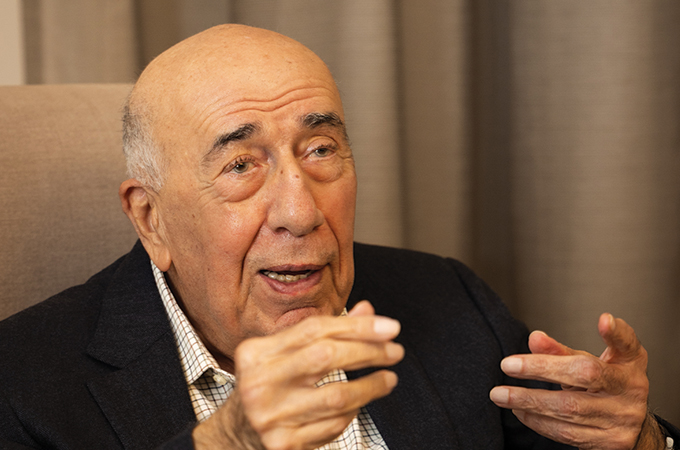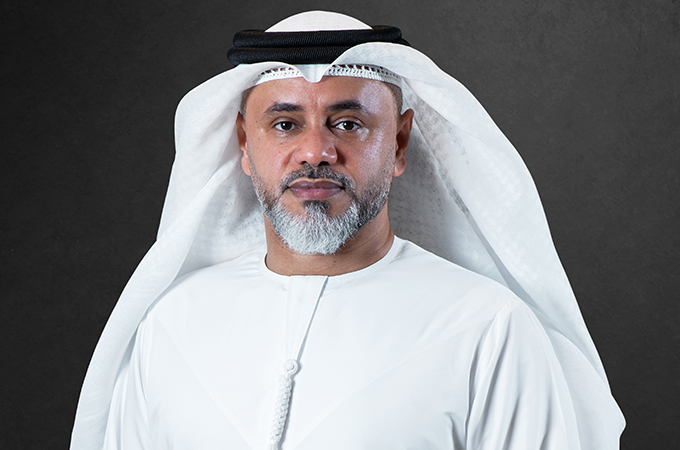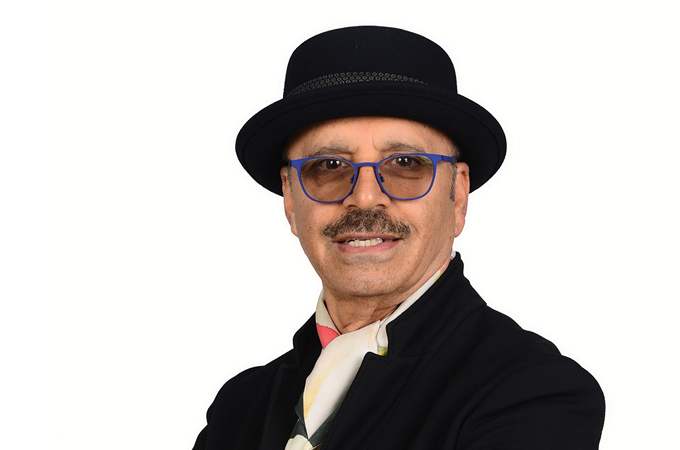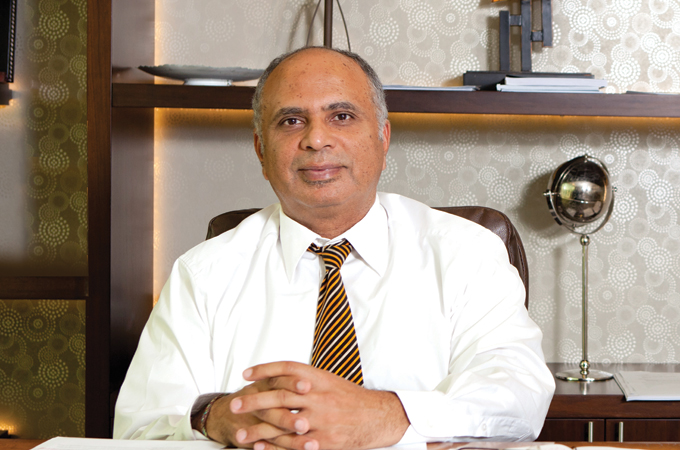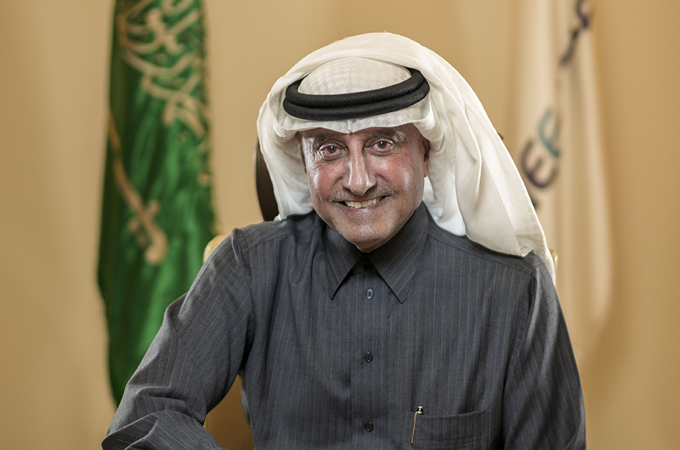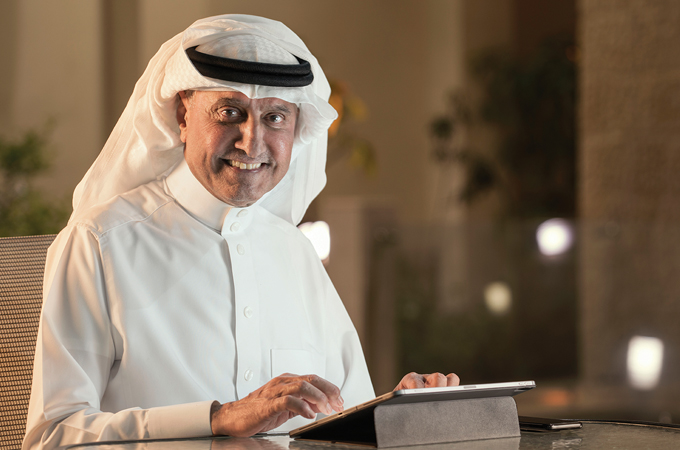Autumn 2016
Astute businessman Ashraf Abu Issa has worked hard to secure his family’s fortunes but finds true happiness in the world of art and antiques
Life’s path is full of twists and turns, of challenges and opportunities. Many are part of the fabric of everyday life, and others have more dramatic, sometimes life-changing consequences.
For Ashraf Abu Issa, a prominent Qatari businessman, art lover and auction house pioneer, the tragedy of losing his father to illness in 1987 proved to be a definitive moment in the young man’s career.
“My father established Blue Salon in 1981, but passed away just six years later,” explains Ashraf, current Chairman of AbuIssa Holding, one of Qatar’s most successful family empires. Ashraf was just 19 years of age and, as the elder of two sons, was obliged to abandon his studies at the University of North Texas in the US and return to Qatar to fill the breach left by his late father.
While he acknowledges the huge responsibilities which came with becoming the head of the family and business at such a young age, he insists it was his duty to support his brother Nabil, aged 17 at the time, two sisters aged seven and 12, and his mother. “My father’s passing was really a case of survival at the beginning,” he recalls. “But he had kept Nabil and I very much in the loop of the business since he had started it, so the transition was easier.”
LEARNING CURVE
Maintaining and developing the kaleidoscope of relationships his father had worked so hard to establish was a priority for Ashraf, but his age and inexperience was a significant hurdle – none more so than in his dealings with household Japanese brand Fujifilm, with whom his father had signed an agency agreement in Qatar less than a year before his death.
“Japan has a system of hierarchy and seniority is highly valued in business relationships,” he says. “Fujifilm was a huge company who didn’t really want to deal with a 19-year old. It was a culture shock and a huge issue that I had to overcome. I even grew a beard to try to appear older! For the first year they were closely monitoring what I was doing, and there was a lot of pressure.”
Although it was a steep learning curve, the young Chairman soon settled into a leadership role he had coveted for almost 30 years with distinction. Demonstrating his strategic instincts at an early stage, he chose to focus group activities on high-end retail in an increasingly wealthy country, and in the mid-1990s AbuIssa Holding opened a department store representing luxury brands, called Highland, in the country’s first shopping mall. The decision to move to luxury retail has been truly vindicated, with the group portfolio now consisting of 100 stores in Qatar and 60 in Saudi Arabia and the UAE representing brands such as Breitling, Versace, Zilli, Bovet, Aigner, MCM and many others.
LOVE OF ART
There was to be another life-definiing experience for Ashraf in the mid-1990s following a chance encounter on an aircraft. “I was sitting next to the well-known newspaper columnist and art lover Mohammed Makhlouf on one of my many trips back from Paris (to Doha),” he recalls. “My trips to Paris were always strictly business but Mohammed persuaded me to take some time to appreciate that city’s art and culture on my next trip. Growing up in Qatar, I had never been exposed to art in school. It meant nothing to me.”
On a subsequent trip to Paris he remembers a trip to his first gallery, accompanied by Makhlouf.
“I had no idea what I was really looking at,” he admits. “But slowly I started living the painting, and a story started to emerge. It was hypnotic, captivating. I started talking to the gallery owner, whose mother had sat for Picasso. I was in a whole new world.”
It was to be the start of an enduring love affair with art, and in the last two decades Ashraf has emerged as one of the driving forces behind Qatar’s burgeoning arts movement led today by Her Excellency Sheikha Al Mayassa bint Hamad Al Thani, Chairperson of the Qatar Museums Authority (QMA) and one of the world’s most prolific collectors of western modern and contemporary art.
Inspired by Her Excellency, and encouraged by his friend Sheikh Hassan bin Mohammed Al Thani, current Vice Chairman of the QMA, Ashraf opened one of Doha’s first art galleries which quickly established a reputation as a place where people of all ages could appreciate local and international art.
“We would offer free classes for school children at the weekend, inviting professors and art teachers from Virginia Commonwealth University in Qatar and local art institutes to talk to them. We’d have 20 to 25 children in the gallery at any one time, painting and engaging with the artists. It was wonderful to see children so mesmerised and moved by art,” he says.
He pays tribute to Sheikh Hassan’s influence on Qatar’s arts scene and the support he has consistently provided to Arab artists. “He built a big hangar-like structure in Doha which served as a space for artists from countries in conflict to stay and work,” he says. “Sheikh Hassan introduced me to all the artists who would come there.”
One of those to whom he was introduced was the late Ismail Fatah, the famed Iraqi painter and sculptor perhaps best known for designing the turquoise split dome of the Al Shaheed (Martyrs’) Monument in Baghdad. Ashraf says a heated conversation he witnessed between Fatah and a younger artist hit home the degree of passion for and knowledge of art across the Arab world.
“The younger artist was painting a sculpture, and to make the subject appear more intellectual he had the idea of placing a book in his hands. Fatah was telling him in no uncertain terms that there were many other subtle ways to infer intellect – in the stare, the gestures, the walking style, for example. It was another moment when art took on another dimension for me.”
Although his affair with art was indeed blossoming, Ashraf found it increasingly difficult to juggle the intense time demands of both running an art gallery and steering the family business during what was a boom time in Qatar. Reluctantly, he closed the gallery in 2004, a decision he admits he was later to regret.
“Running a gallery, attending exhibitions, living and breathing art, is a huge investment of time and emotion. People think it is easy, but it isn’t. And it isn’t easy to delegate when you love something so much.”
PIONEERING AUCTION HOUSE
Yet in April this year the flames which had burned so brightly inside him for 12 years were rekindled as he opened, in partnership with his friend His Excellency Sheikh Abdulrahman bin Hamad Al Thani (the head of Qatar Media Corporation and an art and antique connoisseur), the GCC’s first homegrown auction house.
The glittering inauguration of Al Bahie Auction House at Katata Cultural Village was attended by Sheikha Al Mayassa and the Chairman of Al Faisal Holding Sheikh Faisal bin Qassim Al Thani, an art lover whose private museum is a must-visit destination in Qatar.
Al Bahie has to date held three auctions showcasing Islamic, Middle Eastern modern and contemporary and Orientalist work, fine furniture, jewellery and watches, decorative arts and Orientalist carpets and rugs. The first auction featured a rare 19th century mother-of-pearl Ottoman cabinet, with gold, silver, turquoise and ivory with a pre-sale estimate of $180,000, as well as a striking example of the work of contemporary sculptor Armand Fernandez, valued with a pre-sale estimate in excess of $60,000.
“I wanted to get back into art,” Ashraf says, in reference to his decision to establish Al Bahie with Sheikh Abdulrahman. “I wish I had been a little more tolerant and patient with the gallery.”
Establishing the region’s first auction house, he acknowledges, has been a labour of love, as well as an investment of time and meticulous planning. Ashraf’s team, led by Director Corinne Lefebvre, works closely with art experts from around the world, valuing and insuring pieces, conducting research, cataloguing information, preparing condition reports and translating the work into Arabic.
“Nobody had ever done translations for this sort of content into Arabic before, and for a lot of terms there were no Arabic words,” says Ashraf.
He says the success of the venture, like any business, boils down to trust. “You can easily lose your reputation if someone suspects you are playing with prices or have fake bidders. It takes time to build a reputation, especially in Qatar, where we do not have an auctions culture.”
BUSINESS CHALLENGES
While the internet has made collectible art more accessible than ever to buyers and sellers around the world, Ashraf insists sourcing the very best pieces is still the most difficult aspect.
“Our challenge is finding things to sell, not people to buy,” he confirms. “But online bidding makes everything more viable. The Qatar market is too small but now we have access to buyers around the world – in fact for our first auction more than 50 per cent of the buyers were from outside Qatar. But it is a fragile business and that’s why there are so few auction houses in the world.”
The lack of an art infrastructure in the GCC highlights the relative fragility of the business of art to which he alludes. There is, for example, no specialised art storage facility between Luxembourg and Singapore, though one is now being built in Qatar which will further reinforce the country’s status as a fine arts hub.
“Sheikha Al Mayassa has been bringing the world’s best artists to Qatar, to exhibit art unique for our country,” he says. He furthermore welcomes the imminent opening of the new national museum, designed by French architect Jean Nouvel, and the fact that Qatar’s school curriculum now includes art.
For Ashraf, what started as a naïve interest has developed into full-scale passion. He insists he collects art for love, not money, and is an aficionado of Arab contemporary pieces.
“I like the artist to explain the meaning of the piece to me so I can understand it, but not all of them have an answer. Some are very abstract and they want you to interpret it in your own way.”
He also collects Orientalist art dating from the 1800s which depicts life pre-camera in the Middle East. “Through them we can imagine what life was like inside the homes of that era, the hareems, when American and European artists would have had absolutely no idea. It is fascinating.”
His first art purchase, an Orientalist painting of a woman dancing with a tambourine, comes with a story and a slice of beginner’s luck.
“A friend took me to Portobello [market in London] in about 1998/99. The artwork had been in the house of a man who had served in the Middle East in the First World War, but there was no signature or date visible. I paid 280 pounds for it. As I was removing the wooden frame to prepare to take the painting back to Qatar I found the signature of a Russian artist and the date 1916. It suddenly became valuable.”
Ashraf covets art by the masters of the Orientalist world. Eugene Delacroix, the French impressionist and painter, and his compatriot Jean-Léon Gérôme, are standouts.
INVESTING IN THE FUTURE
Yet as our knight reflects on the richness of his life in art and business, he stresses that none of his four children, or six nephews and nieces, are obliged to follow him into the Group.
“We drew up a family constitution which makes it very hard for them to come into the business unless they really want to. They must work really hard and abide by the many rules we have. Internal conflict can ruin a business. We have more than 4,000 employees in Qatar who depend on the business being successful, and I have a responsibility to protect it and them.”
Ashraf describes investing in the people in the business, whoever they are, as “the best thing we have ever done”.
“Everyone from the CEO down is assessed every year, and 40 individuals are selected and placed on a fast-track programme, including MBAs, to give them specific skills,” he adds.
He can hope that they will be inspired by his = leadership as much as he has been by his country’s leaders, under whose guidance the economy and arts scenes have flourished. “Our government has made strategic investments around the world, and they have successfully acquired companies and hotels. Our country has just 300,000 Qataris and yet we are going to host a World Cup. Our leaders have had a vision and as a business leader you can only be inspired by that. And I’m not just saying that to be politically correct.”
Ashraf Abu Issa is a determined individual following his passions. With Al Bahie Auction House adding another dimension to Qatar’s arts scene, it is highly likely that a new generation of collector and connoisseur will be inspired by him.













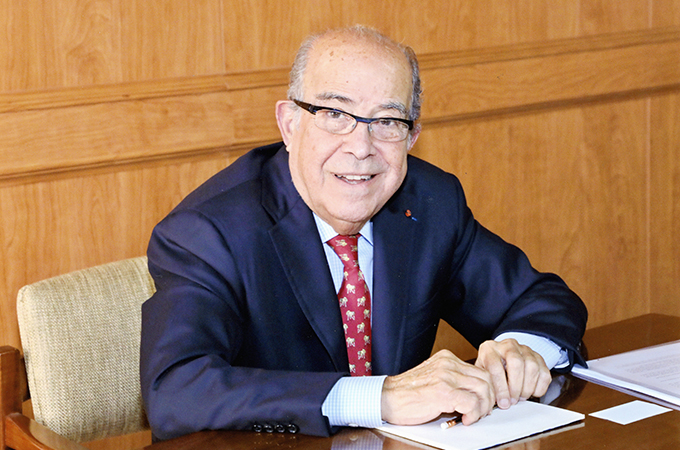
.jpg)
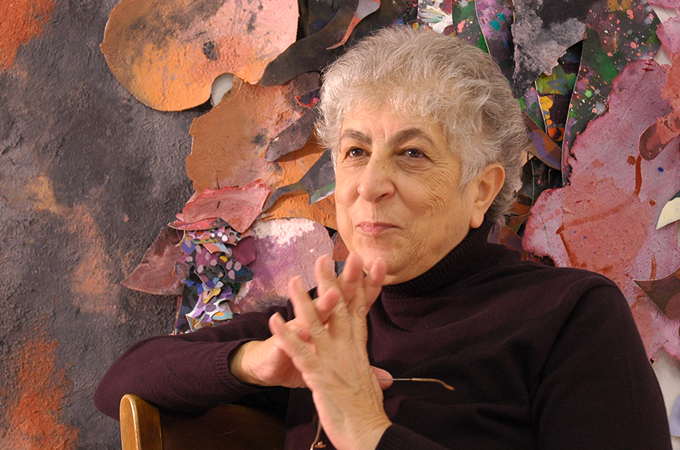
.jpg)
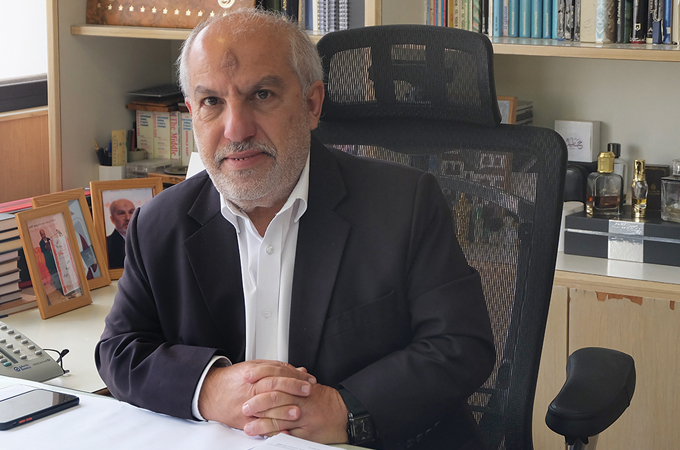
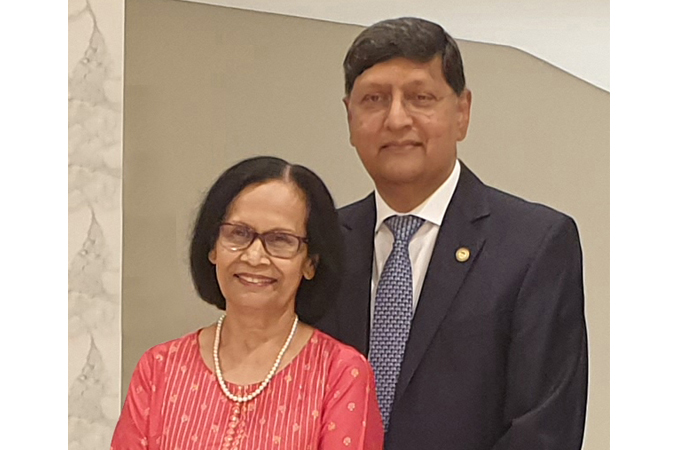
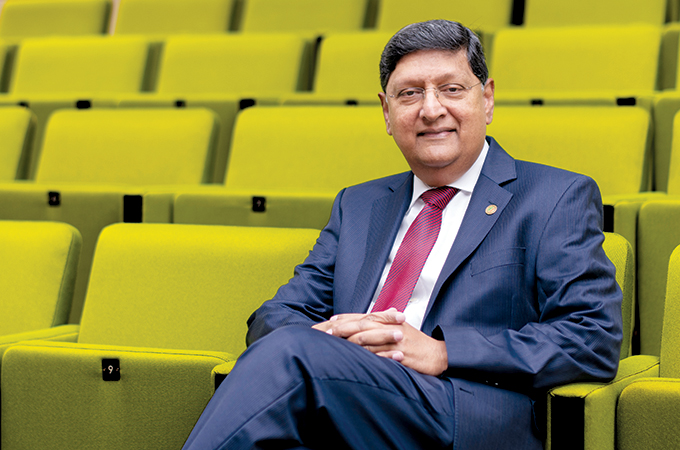
 B.jpg)
